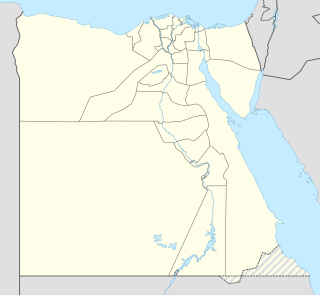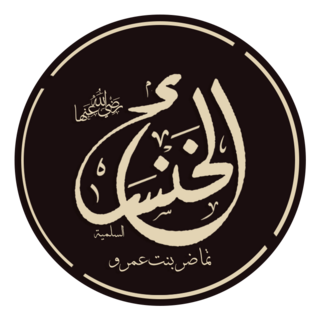Related Research Articles

Allah is the Arabic word for God in Abrahamic religions. In the English language, the word generally refers to God in Islam. The word is thought to be derived by contraction from al-ilāh, which means "the god", and is related to El and Elah, the Hebrew and Aramaic words for God.

Arabic is a Semitic language that first emerged in the 1st to 4th centuries CE. It is now the lingua franca of the Arab world. It is named after the Arabs, a term initially used to describe peoples living in the area bounded by Mesopotamia in the east and the Anti-Lebanon mountains in the west, in Northwestern Arabia and in the Sinai Peninsula. The ISO assigns language codes to thirty varieties of Arabic, including its standard form, Modern Standard Arabic, also referred to as Literary Arabic, which is modernized Classical Arabic. This distinction exists primarily among Western linguists; Arabic speakers themselves generally do not distinguish between Modern Standard Arabic and Classical Arabic, but rather refer to both as al-ʿarabiyyatu l-fuṣḥā or simply al-fuṣḥā (اَلْفُصْحَىٰ).
Arabs are a population inhabiting the Arab world. They primarily live in the Arab states in Western Asia, North Africa, the Horn of Africa and western Indian Ocean islands, as well as in significant numbers in the Americas, Western Europe, Indonesia, Israel, Turkey and Iran. The Arab diaspora is established around the world.

The Arabic alphabet, or Arabic abjad, is the Arabic script as it is codified for writing Arabic. It is written from right to left in a cursive style and includes 28 letters. Most letters have contextual letterforms.

Persian, also known by its endonym Farsi, is a Western Iranian language belonging to the Iranian branch of the Indo-Iranian subdivision of the Indo-European languages. It is a pluricentric language predominantly spoken and used officially within Iran, Afghanistan and Tajikistan in three mutually intelligible standard varieties, namely Iranian Persian, Dari Persian and Tajiki Persian. It is also spoken natively in the Tajik variety by a significant population within Uzbekistan, as well as within other regions with a Persianate history in the cultural sphere of Greater Iran. It is written officially within Iran and Afghanistan in the Persian alphabet, a derivation of the Arabic script, and within Tajikistan in the Tajik alphabet, a derivation of Cyrillic.
Arabic names have historically been based on a long naming system. Most Arabs have not had given/middle/family names but rather a chain of names. This system remains in use throughout the Arab world.
Islamic studies refers to the academic study of Islam. Islamic studies can be seen under at least two perspectives:

Upper Egypt is the strip of land on both sides of the Nile that extends between Nubia and downriver (northwards) to Lower Egypt.
Arabic literature is the writing, both prose and poetry, produced by writers in the Arabic language. The Arabic word used for literature is "Adab", which is derived from a meaning of etiquette, and which implies politeness, culture and enrichment.

Inshallah, also spelled InshAllah or In sha Allah, is an Arabic language expression meaning "if God wills" or "God willing". The phrase comes from a Quranic command which commands Muslims to use it when speaking of future events.[Quran 18:24] The phrase is commonly used by Muslims, Arab Christians, and Arabic-speakers of other religions to refer to events that one hopes will happen in the future. It expresses the belief that nothing happens unless God wills it and that his will supersedes all human will.

Tumāḍir bint ʿAmr ibn al-Ḥārith ibn al-Sharīd al-Sulamīyah, usually simply referred to as al-Khansāʾ was a 7th-century Arabic poet, said to have died in 646 CE. She is the best known female poet in Arabic literature.
The Persian alphabet or Perso-Arabic alphabet is a writing system used for the Persian language spoken in Iran and Afghanistan. The Persian language spoken in Tajikistan is written in the Tajik alphabet, a modified version of Cyrillic alphabet since the Soviet era.

Modern Standard Arabic (MSA), or Modern Written Arabic, is a term used mostly by Western linguists to refer to the variety of standardized, literary Arabic that developed in the Arab world in the late 19th and early 20th centuries. While it is the language used in books, newspapers, and academic settings, Modern Standard Arabic is generally not spoken as a mother tongue, like Classical Latin or Soutenu French. MSA is a pluricentric standard language taught throughout the Arab world in formal education. It differs significantly from many vernacular varieties of Arabic that are commonly spoken as mother tongues in the area; these are only partially mutually intelligible with both MSA and with each other depending on their proximity in the Arabic dialect continuum.

Sir Hamilton Alexander Rosskeen Gibb, known as H. A. R. Gibb, was a Scottish historian on Orientalism.
The Nationalist Democratic Assembly is a political party in Bahrain. It is the Bahraini regional branch of the Iraqi-led Ba'ath Party. The party is led by Secretary General Hassan Ali and Deputy Secretary General Mahmoud Kassab. It was established by Bahrainis who had studied in Ba'athist Iraq during the 1960s and 1970s. The party boycotted the 2002 parliamentary election but not the 2006 election. The 2011 parliamentary by-election was boycotted by the party in solidarity with the Bahraini uprising. It is headquartered in Zinj.
Bahrani Arabic is a variety of Arabic spoken in Eastern Arabia and Oman. In Bahrain, the dialect is primarily spoken in Shia villages and some parts of Manama.

The Arabic script is a writing system used for writing Arabic and several other languages of Asia and Africa, such as Persian, Kurdish, Azerbaijani, Sindhi, Balochi, Pashto, Lurish, Urdu and Mandinka, among others. Until the 16th century, it was also used to write some texts in Spanish. Additionally, prior to the language reform in 1928, it was the writing system of Turkish. It is the second-most widely used writing system in the world by the number of countries using it and the third by the number of users, after the Latin and Chinese scripts.

Sami Ibrahim Haddad, Arabic: سامي ابراهيم حداد was a doctor, surgeon and writer. He was born in Palestine and spent most of his life in Lebanon.

NOW News is a Beirut-based Lebanese news website focused on the Middle East founded in late 2012 and published in both English and Arabic by M Publishing SAL. It used to be known as NOW Lebanon.
Kuwait is divided into six governorates, in each there are several areas.
References
| This article about a papyrus or papyrology is a stub. You can help Wikipedia by expanding it. |
| This article about an organization in the United States is a stub. You can help Wikipedia by expanding it. |